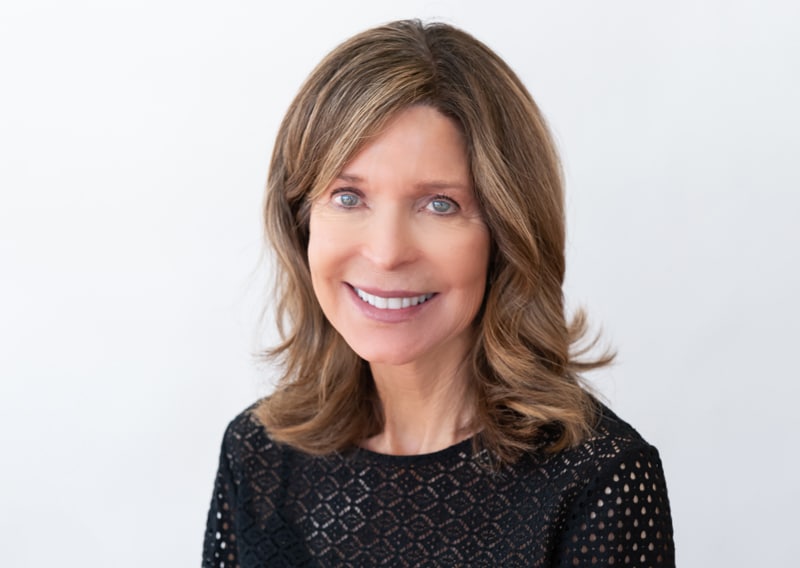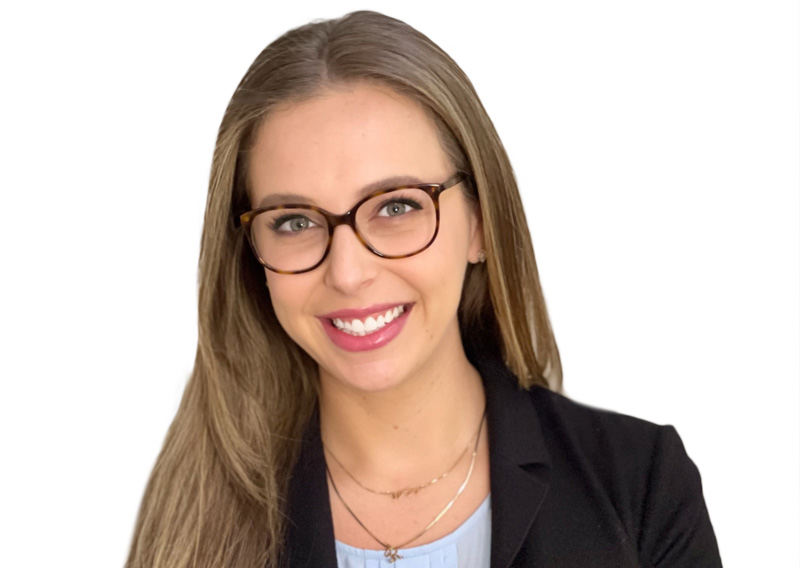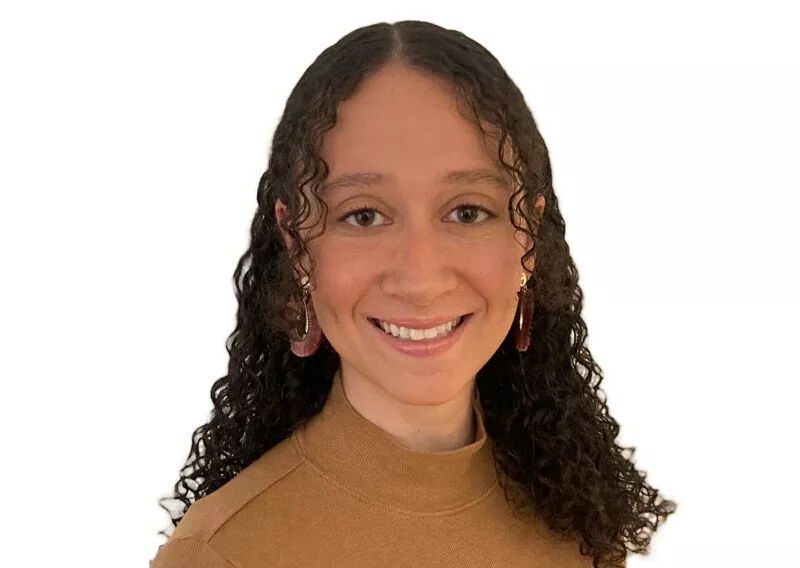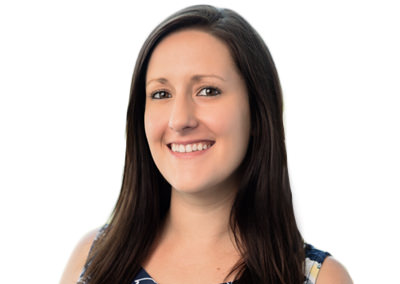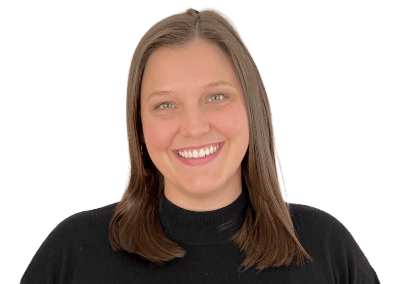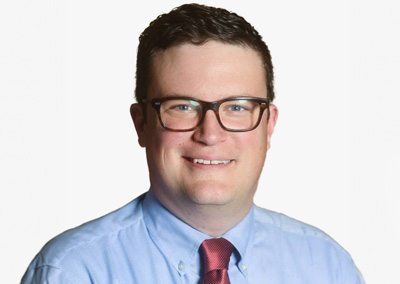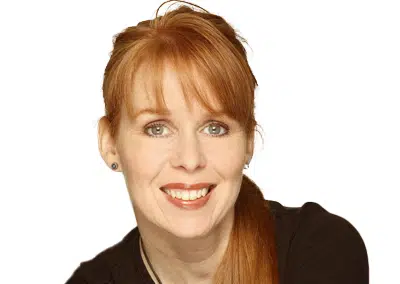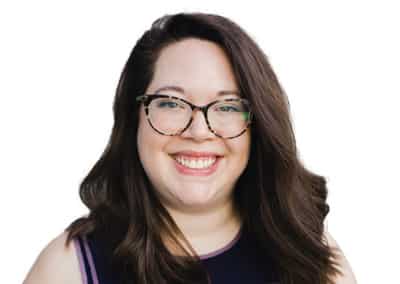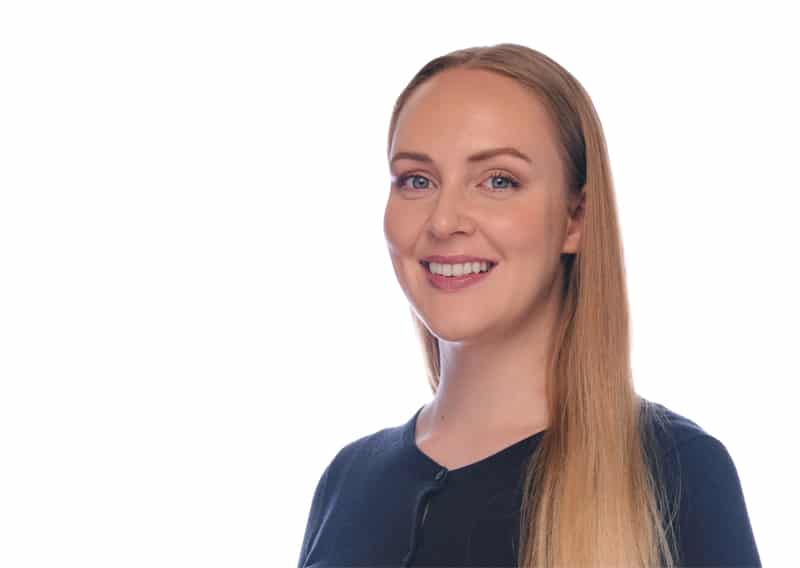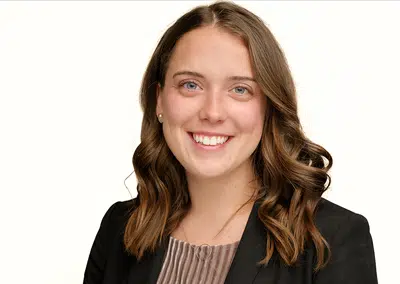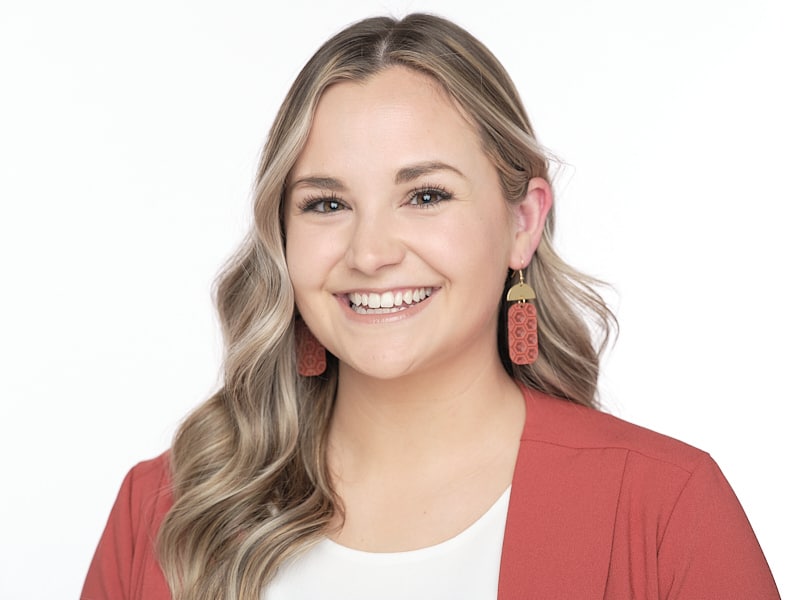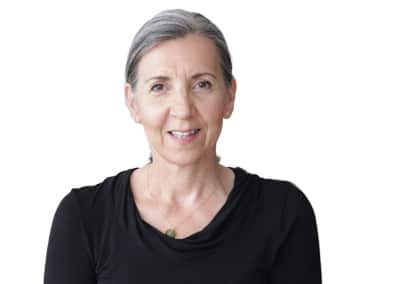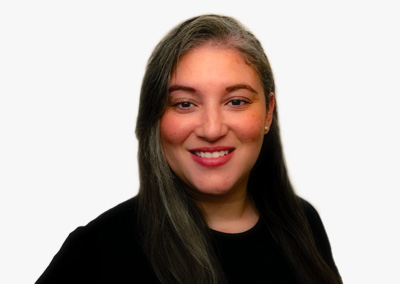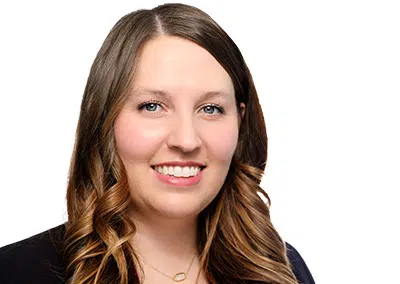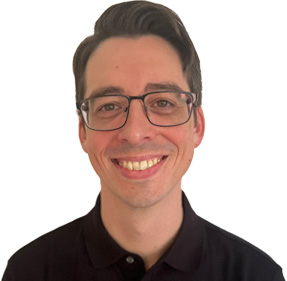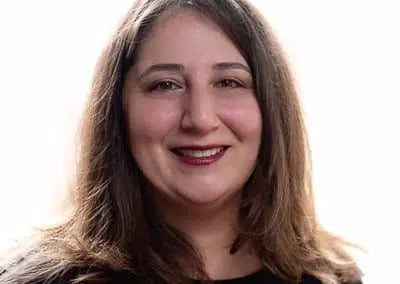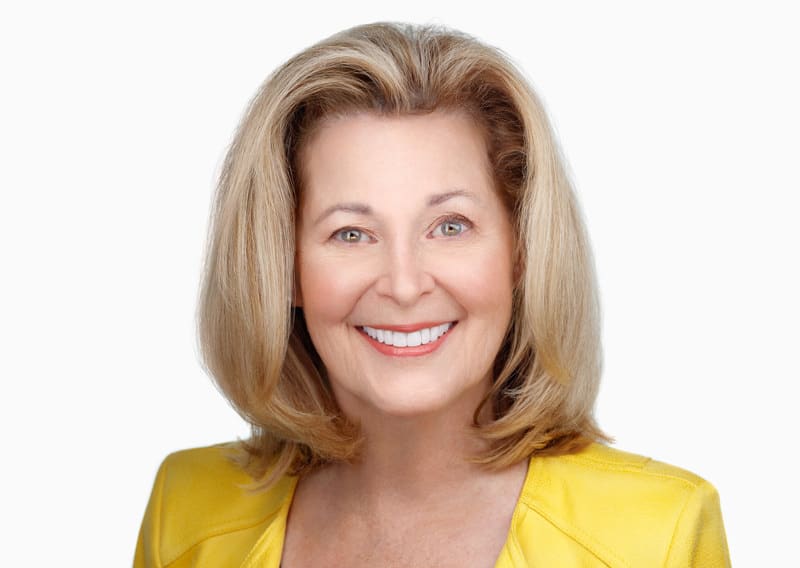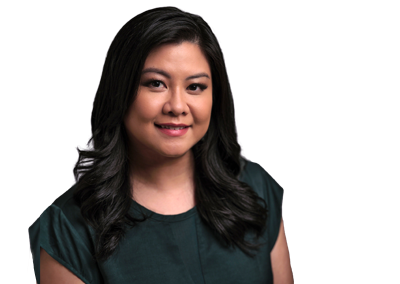
Questions About Therapy:
Coaching vs. Counseling

Dr. Lisa Marie Bobby is a licensed psychologist, licensed marriage and family therapist, board-certified coach, AAMFT clinical supervisor, host of the Love, Happiness, and Success Podcast and founder of Growing Self.
Coaching vs. Counseling, or Life Coaching vs. Therapy — What to know: If you’re seeking out professional therapy or life coaching to support your personal growth, there are many paths to consider and it might not be clear which will lead you where you need to go. You might be wondering, “What’s the difference between life coaching and therapy? And which approach is right for me?”
Because I’m trained as both a therapist and a life coach, this is a question I hear a lot.
Why am I a therapist and a coach? I’ll tell you: I started out on a traditional path, first obtaining a Master’s Degree in Counseling Psychology, then a PhD in Counseling Psychology. I became licensed as a marriage and family therapist and also licensed as a psychologist.
But still… I wanted more.
Like many of my clients, I was often frustrated by the limitations of traditional talk therapy and how it would sometimes — unintentionally — actually keep my clients stuck. My clients didn’t want to endlessly “process” or “unpack.” They wanted to let things go and move forward.
Therapy is absolutely the best course of action if you’re dealing with more serious issues, or if you do simply want time and space to process difficult situations, deal with big feelings, or heal after living through grief, loss, or other hard life events. Psychotherapy, for all the benefits it can provide, is not always the best system for achieving change. Psychotherapy is behavioral healthcare, intended for the diagnosis and treatment of psychiatric conditions. Therapy is for healing, creating insight, or simply having a supportive relationship that “holds the space” for you during very difficult times in life.
However, this type of restorative work is not what my clients always wanted, or needed. They were not dealing with serious issues, they just wanted to grow and be happier. We’d talk about their feelings and then they’d say, “Okay great. Now I know why I feel the way I do, but what do I do with this?” As a therapist, we’re trained to never give specific advice, but rather answer questions like that with, “I don’t know, what do you think you should do?”
For the record, there is a time and a place (and wisdom) in self-directed solutions, for sure. But my clients often really wanted more practical and clear answers. They wanted me to say, “Okay, what are your goals for this situation? Now, let’s brainstorm specific actions you can take, both internal and external, that will help you create this desired outcome.” Therapists don’t do this. But coaches do.
That was the moment I realized I wanted to broaden my practice, and offer coaching services in addition to therapy. I wanted to offer my clients the type of personal growth experience they did want: Insight, yes, but combined with actionable steps and real-world solutions to help them get different results and achieve their most important personal goals. So I became a Board Certified Life Coach, and now have the privilege of working with clients both in my Denver therapy office, and with online coaching clients all over the world.
My experience in both counseling and coaching gives me unique insight into the differences between coaching and therapy — and how to know which path is appropriate.
While both coaching and counseling work by providing a helpful relationship with a person to support your wellness and growth, coaches and counselors differ significantly in their training, methods, and goals. What’s more, some well-meaning life coaches can cause real harm to people who are actually in need of a therapist, and traditional therapy can feel like going around in circles to people who are really in need of coaching.
As you set out on your journey of personal growth, it’s vital to educate yourself about both approaches so that you can choose the right person to help you along the way. I hope the following information helps you make the best choice for you.
Let’s Talk.
Schedule a Free Consultation Today.
The Difference Between Coaching and Counseling: Education
Education for Counselors
The biggest difference between most coaches and counselors is their educational background. In Colorado, for example, a licensed counselor or therapist (interchangeable terms for a mental health professional) must have a master’s degree in counseling psychology, clinical psychology, or educational psychology. Here at Growing Self, everyone on our team has at least one master’s degree, and/or a doctorate.
Licensed counselors are educated and trained around many aspects of the human experience. They’ve had classes in human development, human sexuality, family systems, ethics, research, and a variety of counseling strategies. They’ve also had many, many hours of supervised training around how to be effective helpers.
Like all the experts on my team, I spent years doing therapy on the shiny side of a one-way mirror, under the watchful gaze of my wise supervisors. After I graduated, I spent several more years in “clinical supervision,” where I would discuss all my cases with a seasoned therapist to make sure that I was doing everything right and thinking through every way to help my clients.
Traditional therapists are also educated about common mental health issues like Depression, Anxiety, PTSD, and Bipolar Disorder, and they’re familiar with research and best practices for facilitating personal growth and change.
Education for Coaches
Coaches, in contrast — whether it be a Life Coach, Career Coach, Executive Coach, or Relationship Coach — are not required to have any specific training or education. Coaching is not a regulated profession. Literally anyone can call themselves a “Life Coach” and go into business as such.
While some life coaches do pursue training or education around coaching (anything from reading a book on how to be a life coach, to attending a weekend seminar, to going through a coaching program), this is not a requirement, and many don’t bother.
For example, though I personally chose to go through a coach training program, pass a national exam, and get a Board Certified Coach credential (BCC), I didn’t have to do that. I could have just announced that I was a life coach, and it would have been so! Really!
So if you’re looking for a coach — particularly one who does not have a foundation as a therapist — do be sure they’ve had at least some basic training in coaching from an accredited training program such as ICF or BCC. Look for a “Certified Life Coach” or “Board Certified Coach” credential. But even credentialed coaches are quite limited when it comes to their depth of understanding of evidence-based practices, and most lack the ability to differentiate between a client who could benefit from coaching… and one who is actually in need of mental health treatment.
To really make sure you’re working with a highly qualified professional with the knowledge and experience to help you grow, your best bet is looking for a qualified therapist with a professional degree in counseling, who has also pursued postgraduate training as a life coach.
That way you’ll get the best of both worlds – the education, training, and experience of a therapist, with the action-oriented approach of a coach.But the educational requirements are only the beginning of the differences between a counselor and a coach. The practices also differ in objectives, ethics, and approach.
Coaching vs. Therapy: The Purpose
While there can be a great deal of overlap between what therapy and life coaching look like in practice (particularly the early “exploration” phases of coaching), the objectives of each are quite different.
Therapy is, fundamentally, a type of behavioral healthcare intended to diagnose and treat mental illnesses. That’s what therapists are trained to do. While you can use therapy to gain insight into yourself and grow in your self-awareness, that insight does not necessarily translate into action.
Coaching is designed to help people develop themselves, grow, and become better equipped to achieve their personal goals. While insight is a fundamental part of powerful coaching, that is not where it stops. Did you learn something new about yourself in coaching? Great — but your coach is going to help you figure out what you want to do about it.
Coaching assumes that you’re a fundamentally healthy person capable of making positive change. Therapy assumes pathology and disorder that is limiting your ability to function “normally.” This is a deep and meaningful difference between the two orientations that has a direct impact on the outcomes.
The Objective of Therapy:
Helping people address and resolve problems that make them feel bad emotionally or are impairing their ability to function well. This can include healing from anxiety, depression, mood disorders, trauma, addictions, and many other common problems. It’s understood that unless and until these problems are resolved, it will be difficult for people to make significant changes in their lives. Once they are feeling stronger and more confident, then they can start taking action to change their circumstances.
The Objective of Coaching:
Helping people achieve growth and goals. The basic presumption of coaching is that clients are in a good place mentally and emotionally, and ready to receive guidance and instruction on how to make changes to help them achieve their goals. Whether it be building vulnerability or trust in relationships, boosting emotional intelligence, or simply getting “unstuck” in one area of life or another, coaching can help to create and maintain the motivation for change, explore obstacles to change, and create a plan for moving forward.
Sounds pretty straightforward, right? Actually, this brings us to the biggest difference between counseling and coaching and, in my opinion, the biggest problem with life coaching.
Do You Need Life Coaching or Therapy? Depends Who You Ask!
A coach will think you need coaching, whether or not you do. A therapist will think you need therapy, whether or not you do. A therapist who is trained as a coach will take a much more nuanced and thoughtful approach.
Here’s the biggest problem with coaching: Most life coaches (unless they have a background in traditional counseling) don’t know enough to know that the true obstacles to their client’s goals may be clinical issues such as depression, anxiety, or ADHD.
Educated therapists have been taught that it’s unethical for them to work with people they do not have the training or experience to help. For example, I do not personally have experience or specialized training in helping people with eating disorders or people with body positivity issues, because it’s “outside my scope of competence.” Ethically, I need to refer these clients to someone who does, and can help them love themselves and their bodies.
Coaches who have had formal coach training know that they shouldn’t attempt to help anyone struggling emotionally, or dealing with depression, anxiety, mood disorders, or other recognized mental health problems.
However, most life coaches do not have any formal training and so have not been exposed to this idea. Even certified coaches have had zero education around how to identify depression, anxiety, etc., and often miss it when it’s right in front of them.
Let’s Talk.
Schedule a Free Consultation Today.
The Dark Side of Coaching — Real Risks
The low bar (or, no bar) to entry into the coaching profession is a major issue. When people reach out for help, an uneducated coach may spend many months attempting life coaching strategies like setting goals, increasing motivation, working on strategies, (or just telling inspirational stories about their own life) with someone who really, genuinely needs the services of a trained professional counselor in order to get better.
Imagine suffering from severe depression or crippling anxiety and receiving a roadmap to work toward your goals, rather than actual treatment. It would be a huge waste of time and money. In the worst cases, it could even make your psychiatric symptoms worse.
What’s even worse than connecting with a well-meaning but unqualified life coach who doesn’t know enough to know when you require therapy instead of coaching? That would be connecting with an unqualified life coach who sincerely believes they can actually assist you with serious mental health situations.
Exhibit A: An actual text message I received from a professional colleague who is also a licensed psychologist, about an unqualified life coach attempting to practice far, far outside the scope of their competence….

Another Scary True Story: I have a different friend, also a psychologist, who was in a coffee shop at a table next to a very upset woman sitting with a coach of some kind. My friend could hear every word, and the woman was very clearly describing and experiencing symptoms of Major Depressive Disorder.
The coach was in way over her head, but clearly either didn’t know it or didn’t feel it was necessary to halt the meeting and provide this poor woman with a referral to a qualified mental health professional who could help her. This put the client at risk for months or years of continued pain and suffering, or, worst case, of becoming increasingly hopeless, despondent, and unwell to the point of considering suicide. Depression is, after all, a potentially fatal disease.
In my opinion, this is the biggest problem with coaching: hurting, vulnerable people don’t know that most coaches lack the educational background and regulatory oversight to help them. In their ignorance, they are reaching out for help to people who often don’t even know enough to realize they are not qualified to provide it.
Coaching vs. Therapy: Ethics & Boundaries
Life coaches and counselors also have very different standards of professionalism and ethics.
For example, counselors are required to maintain very strict ethical guidelines around the way they handle professional boundaries and confidential information with their clients. Because there are not any regulations or educational requirements for life coaches, ethical standards for coaches vary widely.
Furthermore, coaches are not beholden to the same guidelines around client confidentiality or professional boundaries. For example, your mother’s best friend could be your life coach and meet with you in a coffee shop to talk about achieving your career goals, and then give your mom a casual update about how you were doing. That’s completely fine!
However, an ethical therapist would, 1) never agree to work with someone so closely connected to them personally, 2) never meet a client in such a public setting where others can see and overhear the conversation, and 3) never reveal a word to anyone, without explicit written consent, about what was discussed.
Furthermore, if a therapist behaved unethically — offering to meet you for coffee, making a romantic pass at you, violating your confidentiality, or conducting their sessions in a wildly inappropriate and harmful manner — there is recourse. You could report them to their state regulatory agency. A case would be opened, they would be investigated, and, if found “guilty” their license to practice could be taken away. Even if the board recommended remediation instead of actually pulling the plug on their practice, there would be a publicly available record of what happened and the fact that they have been grieved or censured by the board.
If a life coach did any of those things, who would you report them to? How would you be able to verify that they are in good standing, or know if they have engaged in a pattern of shady behavior in the past? Unless there is a criminal case against them or their behavior was outrageous enough to make the news, you’d never know.
It’s difficult enough to find a genuinely good, competent therapist. You can look for education, training, licensure, and whether or not they practice evidence-based forms of therapy. Still, these are not guarantees you’ll have a good experience. Though therapists (in most states, although not in Colorado) do need to be licensed to practice therapy, the types of therapy offered and the metrics around a therapist’s outcomes are not regulated. That’s why it’s so important to educate yourself around the types of therapy and how to choose a therapist before starting therapy.
But how do you ascertain the “quality” of a life coach, in the absence of credentials, education, or alliance to evidence-based methods? Their Instagram game? How well they photograph, or how well-branded their website is? These are important things to consider when figuring out what type of helping professional is genuinely deserving of your trust and confidence, particularly if you’re seeking help with the most precious and important goals for your life.
Let’s Talk.
Schedule a Free Consultation Today.
Coaching vs. Therapy: The Approach
At this point you may be thinking that I’m not a fan of coaching. Nothing could be further from the truth. I myself am very proud to be a Board Certified Coach. This is because a coaching model can provide positive outcomes to people for whom traditional therapy fails. There are very real limitations to traditional therapy, particularly for high-functioning, action-oriented people.
The Problem with Talk Therapy
For example, conventionally taught therapists and counselors are often explicitly told not to give anyone specific advice or steer clients toward real-world change, but rather to help their clients find their own answers to problems. This is especially true with “non-directive” forms of therapy, like Interpersonal Therapy, Psychodynamic Therapy, and Client-Centered Therapy. The rationale for this stems from the primary assumption of therapy: You, the client, are vulnerable and fragile, and prone to taking other people’s “truths” as your own. The assumption is that you need to have a “healing relationship” with a therapist who you can work through your “issues” with, helping you build your self-love and capacity for vulnerability in the process. The goal of this type of therapy is digging through your subconcious mind to unearth insight, and building a relationship with a therapist as you do.
Over time (months, sometimes years) of talking out loud to your passive, non-directive — but always unconditionally accepting! — therapist, your answers will emerge. And then you will know your truth. No one needs you to do anything about your truth, but you will have said it out loud. Perhaps you will cry. And then you can come back and do it again next week, and the next, and the next…
The net result for many people is that traditional talk therapy feels like “just talking about their past” without translating insights to real-world changes.
Evidence-Based Behavioral Healthcare
However, this is not true for all forms of therapy. Therapists who have a clinical mental health background focused on treatment often use evidence-based approaches that are more active and intentional in nature. In fact, counseling research shows that more active models of therapy tend to be more successful at producing positive outcomes, particularly around symptom reduction.
That is why we at Growing Self exclusively practice evidence-based forms of therapy. “Directive” forms of therapy include Cognitive Behavioral Therapy, Systems Theory, Emotionally Focused Couples Therapy, Solution-Focused Therapy, Mindfulness Training, Acceptance and Commitment Therapy, and others. These therapeutic approaches do offer people concrete strategies for growth and change.
However, the purpose of these types of therapy is, again, at the core, mental health treatment, not growth and personal development.
But What About Well People Seeking Growth and Change?
Many people I speak with who are frustrated with conventional therapy largely attribute it to not getting “feedback” or helpful guidance in solving problems and making improvements. These people also don’t meet criteria for a psychiatric condition. So clinical mental health treatment is not appropriate, and slow, introspective, navel-gazing talk therapy makes them crazy.
That’s why they seek out a coach, in hope that they would get a partner who would offer actual guidance and ideas on how and where to make changes.
In contrast to counselors, coaches will make recommendations and help you brainstorm solutions and strategies for changing things in your life. Ideally, a coach would be tentative with this, and not push their ideas on you if they don’t fit. An ethical coach will always make sure that the solutions they are proposing are congruent with the client’s belief system, circumstances, and personality. But people seeking help are often looking for real-world guidance. With coaching, they get it.
In my professional experience, in the absence of a psychiatric diagnosis, coaching is a much more effective, direct, and empowering method of helping people achieve growth and positive change than therapy.
Let’s Talk.
Schedule a Free Consultation Today.
How is Coaching Different From Therapy?
A good coach will help you understand what, specifically, is causing your sense of stuckness or dissatisfaction. You might want to have better connections with others, or learn to manage difficult people in your life. They will lead you through a variety of activities that will help you get clarity about who you are, what is important to you, your strengths, and also your inner and outer obstacles. That becomes the roadmap for the rest of your work.
Once you establish where you want to go and why, a good coach will help you identify the things that you need to do in order to get there. These could be making changes to your behaviors or daily practices, but they may also be internal changes. If your goal is to have better relationships, you might learn how to communicate differently, set boundaries with your parents, or set healthier boundaries in your relationships. Powerful, meaningful coaching can go in many directions, but it is always based on helping you figure out what to do next in order to get where you want to be.
In addition to giving you very explicit information about your strengths and uncovering your hidden obstacles, your coach will be an active partner in brainstorming ways to move forward. From this work will eventually evolve a structured plan of action. This often includes “homework assignments” of various kinds that help you practice new skills and strategies outside of your sessions. Provided that your coach has the education and experience to know what will help you, the clear instruction and specific assignments can be extraordinarily helpful. Having a roadmap for change, as well as a supportive accountability partner, can make all the difference if you are genuinely ready to make changes.
Coaching and Counseling: Finding a Balance
At Growing Self Counseling and Life Coaching, we strive to find an ideal balance between the two approaches.
I think of our team as “coachy counselors,” meaning that they are, first and foremost, highly educated, experienced mental health professionals who are able to help you on many different levels. They are also practitioners of effective, action-oriented, and positive approaches that help you get results. This can be through therapy, or through solution-focused coaching, depending on your needs.
Effective Personal Growth Work Starts With an Assessment
If you’re not quite sure whether coaching or therapy would be more helpful for your personal growth work, that’s okay. A therapist who provides coaching can help you figure that out, ethically and with competence.
Most people reach out to a coach or therapist when they feel like they’re struggling to get traction on their own. Many don’t really know what kind of therapist or coach they need or want — they’re simply feeling frustrated with their lives or with themselves, and seeking guidance for how to build self-love and shift out and into something better.
That is completely normal. All growth is motivated by a sense of dissatisfaction with things as they are. This is a positive thing, so long as it propels you forward.
Because it’s often hard to know why you feel the way you do, or what specifically you need to grow and evolve, it can be easy to get connected to the wrong type of helping professional.
Mental Health Issues are Real
For example, someone who’s been feeling unmotivated and like they’re stuck in life might reach out to a (well-intentioned) coach who gets right to work helping them create an ambitious action plan that they will never follow through with…because they’re in the grips of a major depressive episode and they need therapy.
Bad Feelings Aren’t Always “Symptoms”
Another person who’s feeling similarly stuck and unmotivated might get a major depressive disorder diagnosis from a therapist operating from a medical model, along with a therapeutic approach that seeks to resolve their “symptoms”… and misses the fact that they’re feeling low because they really hate their current career path and need to explore other options.
In this case, they don’t need a therapist working to make their “symptoms resolve.” They need someone who can help them understand why these feelings make sense and are an indication that they need to take values-based action.
Here’s a helpful analogy: If you have Major Depressive Disorder, it’s like having a problem with the nerve endings in your hand. You’d have an intense, throbbing pain in the hand that just won’t go away. You’d work with a therapist to change the way you think, feel, and behave (and maybe try some medication too) in order to make the pain go away. Once it did, you’d be healed.
But if you do not have a depressive disorder and your hand was hurting, a life coach would look and see what was going on in your life that’s causing the pain. They’d say, “Oh, your hand hurts because you have it on a hot stove. Take your hand off.”
Your pain isn’t coming from within you. It’s not disordered. It’s circumstantial, and it’s something that you need to listen to and take action on — not make go away.
Let’s Talk.
Schedule a Free Consultation Today.
Determining Whether You Need Therapy or Coaching is Worth Figuring Out
Understanding what’s really going on requires getting help from a professional who can look at your situation from both angles and think: Is this person currently struggling with the symptoms of a mental health condition? If yes, I’m going to recommend therapy. Or: Is this person’s pain attached to dissatisfaction and a desire for change? If yes, I’m going to recommend coaching.
But a therapist who is not familiar with coaching won’t be able to do that. Nor will a garden variety life coach who doesn’t have the capacity to identify psychiatric symptoms.
A therapist who practices coaching will.
Moving from Therapy to Coaching
It’s not a good idea to shift from working with the same therapist around mental health symptoms into a coaching relationship. However, if you find a therapist who understands coaching, they may incorporate coaching strategies into your therapeutic work, depending on your stage of growth.
For example, if you are struggling with a condition like a generalized anxiety disorder that is creating significant distress and impairment for you, you would benefit from working with a good therapist using an evidence-based approach that helps resolve your symptoms and create a good place for yourself mentally.
Once you’re feeling better, you might eventually feel ready to make positive changes and move forward in your life. While your therapist will always be your “therapist,” and keeping a close eye on your mental health symptoms, a therapist who practices coaching may eventually shift to a more action-oriented approach. Instead of continuing to focus on the impact of the anxiety, they might help you identify areas of your life that you’d like to grow, build, and develop once your anxiety has been well managed.
Moving from Coaching to Therapy
It is also the case that we sometimes have people who reach out to us for our life coaching services, only to discover that the obstacles holding them back are linked to serious, unresolved issues that are better addressed by therapy. That’s okay too.
A coach who practices therapy will recommend that you seek mental health services rather than coaching. If they are licensed to provide behavioral healthcare in your state, they may be able to serve you as a therapist. If they are not, they will make a referral or provide you with assistance in connecting with a good local mental health provider.
The Therapists and Coaches of Growing Self
Educational requirements: Everyone on my team has at least a master’s degree or doctorate in a counseling-related field, as well as a background in traditional counseling. (With the exception of our executive and career coaching specialist Hilary R. She has two master’s degrees, one in business administration and the other in career development, as well as a board certified coaching credential – making her the most qualified career and executive coach on our team!)
Ethics and boundaries: We all maintain strict ethical standards around boundaries and confidentiality. If we determine that your problems would be better served by a different type of practitioner, we will refer you elsewhere.
Our approach is tailored to you: Because of our experience, education, and multiple areas of expertise, we are always able to meet you exactly where you are and give you the right help at the right time.
Ready to explore more about whether a coach or a counselor is right for you? Take our free therapy or life coaching quiz. Or, you can speak with an expert on our team by scheduling a free consultation appointment.
I sincerely hope that this honest information helps you understand the pros and cons of both therapy and coaching, and helps you make an informed decision about which path forward is the right one for you.
Your partner in growth,

Dr. Lisa Marie Bobby is a licensed psychologist, licensed marriage and family therapist, board-certified coach, AAMFT clinical supervisor, host of the Love, Happiness, and Success Podcast and founder of Growing Self.
Meet a Few of Our
Expert Therapists & Coaches
Meet Our Team
Linda P.
M.A., LMFT
Thriving Personal & Professional Relationships
Meet Linda: a relationship expert and certified emotional intelligence coach with a unique blend of professional experience as a marriage counselor, executive coach, leadership coach, life coach, and therapist. She's here to help you understand yourself and others, improve your communication, increase your emotional intelligence, and cultivate positive relationships — both personally, and professionally.
Silas H.
M.S., LMFT
A Partner in Growth for Individuals & Couples
Meet Silas: a couples counselor, therapist, and life coach with an easy-going, humorous, and down-to-earth style that makes personal growth work both enjoyable and effective. His tireless support, encouragement, and expertise help you stay motivated to make real and lasting change in yourself and your relationships.
Dr. Rachel D.
DMFT, LMFT
Expert Care for Your Relationship
Meet Dr. Rachel: a relationship coach and marriage and family therapist with a warm personality and productive approach. She helps you and your partner restore trust, deepen intimacy, reconnect emotionally, and transform your shared life through the healing power of a healthy partnership.
Talia R.
M.S., MFTC
Straightforward, Open-minded & Action-Oriented
Meet Talia: a relationship specialist whose warm, collaborative approach guides you toward deeper exploration, connection, and understanding. With her authentic and straightforward style, she can help you gain the clarity and skills to cultivate the life and relationships you desire.
Jenna P.
M.A., LPC, LMFT
Insightful, Welcoming & Productive
Meet Jenna: a supportive marriage counselor, couples therapist, individual therapist, and life coach with a friendly, light style and a great sense of humor. She uses effective, evidence-based techniques to help you build understanding for yourself and your partner, increase intimacy and connection, and achieve your most important goals.
Emily B.
M.S., LMFT
Dedicated to Your Empowerment
Meet Emily, a couples counselor, relationship coach, individual therapist and life coach with a positive, empowering approach to helping you create the change you desire. Emily believes that we each have the seeds of wisdom inside of us — and that with the right support, you can cultivate greater well-being, love, and success.
Dr. Ben J.
Ph.D., LMFT, LCMFT
Healthy Relationships, Happy Life
Meet Dr. Ben: a couples counselor, premarital counselor, individual therapist, and life coach who helps you activate your inner strengths to create better relationships and a fuller life. His collaborative, friendly style makes him easy to talk to, and his action-oriented mindset helps you get results.
Kanya D.
M.A., LMFT
Inspired Life, Inspired Love
Kanya is a licensed marriage and family therapist, individual therapist, life coach, and parenting coach with more than 20 years of experience helping couples develop deeply loving and satisfying relationships, helping parents and families thrive, and helping individuals reclaim their happiness.
Dr. Paige M.
PhD, LMFT
Kind, Encouraging & Insightful
Dr. Paige is a friendly and enthusiastic therapist who is passionate about you living a meaningful, joy-filled life based on your true values. She's a big believer in the transformative power of vulnerability — and helping you build a brave space where you can connect deeply with the people you love most.
Kensington O.
M.S., LMFT
Compassionate, Present, and Supportive
Meet Kensington: a couples counselor, premarital counselor, individual therapist, life coach, and breakup recovery counselor. With compassionate understanding and unique insights, Kensington helps you move past the past and improve the most meaningful parts of your life — from your emotional well-being to your relationships.
Georgi C.
M.S., LMFT
Nurturing Healthy Families & Happy Relationships
Meet Georgi: a warm, compassionate, Arkansas-based marriage counselor, individual therapist, and family therapist who creates a safe and supportive space for you to find meaning in your struggles, realize your self-worth, and cultivate healthy connections with the most important people in your life.
Elizabeth B.
M.A., LMFT
Emotionally-Focused, Authentic & Understanding
Meet Elizabeth, a couples counselor and individual therapist who uses evidence-based approaches in her emotionally-focused work with clients. She believes in your potential for profound healing and growth. She will help you cultivate self-compassion and emotional wellness, so you can build the life and relationships you deserve.
Roseann P.
M.S., LMFT
Open Heart, Wise Mind
Meet Roseann: an empathetic and intuitive marriage and family therapist, individual therapist, and life coach. Through authentic connection and a down-to-earth demeanor, Roseann guides you toward clarity and well-being. Using mindfulness and values-driven action, she helps you overcome challenges and create fulfillment in all aspects of life.
Alejandra P.
M.A., LMFT
Dynamic, Transformative & Compassionate
Alejandra is a true expert at nurturing your positive transformation — helping you to find happiness in your life and fulfillment within your relationships. She will help you break free from old patterns that are getting in the way of the life you want, and then chart your pathway to achieving your most important goals.
Brittany S.
M.A., LMFT
Compassionate Care For You & Your Relationships
Meet Brittany: a couples counselor, individual therapist, premarital counselor, and a life and relationship coach with a warm, authentic, emotionally-focused approach. She works with you to build deeper connections, restore emotional bonds, and grow in your capacity to love and be loved.
Tania C.
M.B.A., M.A., LMFT (she/her/hers)
International Love, Life, & Career Coach
Meet Tania: a relationship coach, career coach, dating coach, and executive coach with a unique blend of experience, education, and training, and a nuanced cross-cultural perspective. As a relationship expert and a career expert, Tania can help you build passionate and fulfilling relationships while thriving in your professional life.
Meagan Terry
M.A., LMFT
The Relationship Specialist
Meet Meagan: an experienced Licensed Marriage and Family Therapist who specializes in helping you create happy, healthy, joyful relationships. She's an expert marriage counselor, emotional intelligence coach, premarital counselor, and dating coach who uses effective therapeutic approaches to help you create a lifetime of love.
Ronni M.
M.A., LPCC
Illuminate Your Possibilities
Meet Ronni: a career counselor, life coach, and individual counselor with a caring personality and a flare for adventure. Whether you want to embark on a new career path, work on personal growth goals, or pursue greater life satisfaction, she’s here to support and motivate you to create positive change.
Dr. Tuyet
Ph.D., LMFT
Committed to your Happiness and Success
Meet Dr. Tuyet: a highly compassionate and experienced licensed marriage and family therapist. Dr. Tuyet uses an evidence-based approach to equip you with the tools you need to build the life and relationship you really want. She will empower you to dig deep, take risks, and weather life's transitions with ease and grace.
End of Members
No more pages to load
The therapists and life coaches of Growing Self have specialized education and training and years of experience in helping people achieve their personal and professional goals. We use only evidence based strategies that have been proven by research to help you get clarity and direction, have better relationships, feel happier, and design your ideal life.
This website is devoted to your wellbeing, and offers loads of free information and actionable advice that you can start using today to create positive change in your life. Browse around to meet our experts, get free advice on our blog, listen to a podcast, or take our “How Healthy is Your Relationship” quiz.
Or, if the time is right, you can schedule a free consultation with any of us to talk about your situation — and, most importantly — your hopes for your future.
Let’s Talk.
Schedule a Free Consultation Today.
Therapy Questions, Answered.
Support For Your Growth
Our expert therapists have generously created an entire library of articles, activities, and podcasts to support you on your journey of growth. Please visit our “Happiness Collections” to browse our content collections, and take advantage of all the free resources we have for you. Or, if you’d like to educate yourself about the process and logistics of therapy, please help yourself to our “therapy questions” knowledge base below. It’s all for you!
Do I Need Therapy?
Wondering if your issues going to work themselves out, or is it time to talk to a professional? Here’s how to tell when it’s time for therapy.
Therapy Works, But How?
Great therapy can feel like magic, but it’s actually not. Learn how meaningful and effective therapy works.
What is Therapy Like?
What is therapy like? Learn what happens in therapy in order to feel empowered and confident.
What Kind of Therapist Do I Need?
There are many different kinds of therapists and many different types of therapy. What kind of therapist do you need? Find out!
What To Talk About in Therapy
Not sure what to talk about in therapy? Here are some tips to ensure you get the most out of your therapy sessions.
Therapy Consultation: What to Expect
How to prepare for your first therapy appointment, and learn what to expect in therapy sessions.
Coaching vs Therapy
What’s the difference between coaching and therapy? Find out which approach is right for you.
What is Cognitive-Behavioral Therapy?
Cognitive-behavioral therapy is the “gold-standard” of effective, evidence-based therapy. Learn about CBT.
What is Talk Therapy?
How does talking about something help you make changes? Or… does it? Learn the pros and cons of traditional talk therapy.
Why Evidence-Based Therapy Matters
Effective therapy is life-changing, but some therapy is a waste of time and money. Evidence-based therapy makes the difference.
How to Find a (Good) Therapist
Not all therapists are the same. Learn how to find a good therapist (and spot the warning signs of a bad one).
Therapy For Healthy Relationships
Working with a true relationship expert helps you learn, grow, love, and be loved.
Learn about our approach to helping you build healthy relationships.
Guide to Online Therapy
Online therapy is just as effective but even easier than in person therapy. Here’s what to expect from good online therapy.
Denver Therapist
Explore your options for a Denver therapist who specializes in personal growth and healthy relationships.
How to Get a Therapist
Ready to try therapy? Here’s a comprehensive guide on how to get a therapist who is competent to help you.
Therapy Reviews
Curious to know more about what working with us is really like? Browse Growing Self reviews / “best online therapy reviews” from our clients.
How Much Does Therapy Cost?
Good therapy is priceless, but not all therapy is valuable. Learn the cost of therapy that’s affordable and effective.
Does Insurance Cover Therapy?
Yes, insurance covers therapy… but only sometimes. Learn when (and how) health insurance covers therapy, and when it doesn’t.
Help Someone Get Help
If you have a loved one who is struggling in their relationship, you can help them get help by “gifting” therapy. Here’s how…
Divorce & Breakup Recovery
Losing a relationship is uniquely painful and challenging. With the right support, you can heal, grow, and move forward. Learn about our divorce and breakup recovery services.
More Questions? Let’s Talk.
We’re available by phone, email and chat, and happy to answer any of your questions personally. Get in touch, anytime.
Start Therapy
Start your journey of growth today. Get personalized recommendations, and have a free consultation meeting with the therapist of your choice.




